Daniel Tiger’s Neighborhood: What we can learn from the 2020 pandemic episode
The children’s show is no stranger to addressing difficult, sometimes taboo issues
In 1954, Daniel Tiger was brought to life in the hit children’s series, “Mister Rogers’ Neighborhood.” The once stuffed, lumpy-looking puppet has taken on a new cartoon look in “Daniel Tiger’s Neighborhood,” a cartoon version of the original show that places Daniel as the stand-in for the late Fred Rogers.
The PBS kid’s show, which premiered in September of 2012, dedicated an episode —“Won’t You Sing Along with Me” — to feelings surrounding the COVID-19 pandemic. Upon first watching the episode with my 2-year-old niece, I was a bit surprised that the writers of the show decided to take on such a difficult topic — then again, I wasn’t.
The original “Mr. Rogers Neighborhood” began conversations that other children’s shows refused to mention: divorce, race relations, and even nuclear war. To me, it was very evident that Fred Rogers took children seriously by addressing issues that so many children face, but not too many adults take the time to explain.
Children are deserving of being taken seriously, meaning we have to talk to them about what’s happening in our world, not brush it over by pretending that kids aren’t capable of understanding current events. They are capable, and they notice who takes the time to explain confusing issues to them too.
I will admit that I was reluctant to watch “Daniel Tiger’s Neighborhood” because it felt almost blasphemous: how could they try to remake the show that changed millions of children’s lives and also replace Fred with a cartoon Daniel Tiger? I was naively reluctant, but then I started noticing what my toddler niece did watch: Paw Patrol and Octonauts, to name a couple. To me, the lessons taught in these two shows were very surface level; it felt more like entertainment one would play in the background rather than television you would want children learning from.
So I gave “Daniel Tiger’s Neighborhood” a shot, and I’m glad I did. My niece and I were watching the series back to back, when suddenly, a new episode that seemed to allude to social distancing and staying at home started playing. It felt too familiar to just be another episode about hygiene, and sure enough, I was right: the episode, released in August of 2020, was, in fact, talking about living during a pandemic. Though I had put the show on for my niece, as I was watching, I realized that adults could learn plenty from this pandemic episode too. Below, you’ll find some themes from the episode that I found helpful to my own journey in processing living in a pandemic.
Ask Questions About What’s Happening, It Might Help
The episode begins with an altered theme song and visuals: usually, Daniel Tiger is seen riding the trolley with his friends, happily singing the intro song. In this episode, however, Daniel is now communicating with his school friends via video call. They are still singing, but now they are physically apart from one another.
The opening scene shows Daniel playing with his stuffed, non-human animal, Tigey. “Ready to ride the carnival ferris wheel, Tigey,” an elated Daniel asks. Much to his surprise, Daniel learns that he won’t be able to attend the carnival this year because Dr. Anna, presumably their general practitioner, advised against attending in-person public events.
“Dr. Anna told us that we shouldn’t all get together with our whole neighborhood right now. We’re staying far apart so we don’t accidentally spread germs,” said Daniel’s father, Dad Tiger.
Daniel, inevitably upset, expresses that he feels mad about not being able to attend the carnival this year. “Things have changed a lot lately, and it’s frustrating. Your dad and I are upset about it too. Do you want to talk about it?” asked Mom Tiger.
Daniel’s mother then suggests something to help Daniel process the fact that he can’t go to the carnival anymore: Ask questions about what’s happening, it might help.
It occurred to me that I often felt uncomfortable and unable to process my own feelings about the pandemic because I wasn’t asking enough questions. There was so much I wondered about that I kept to myself.
As Americans approach nearly a year in quarantine, so many of us have grown increasingly frustrated over still having to stay inside. When will life return to normal again? Will life ever be normal again? Though we may not have the answers to these questions, asking them and starting a conversation with people you trust could help you process your own feelings.
Look For the Helpers When You’re Afraid
Now more than ever, people have been relying on the helpers in our communities, otherwise known as essential workers. Fred’s notion of looking for the helpers has become a common go-to quote during difficult times. “When I was a boy and I would see scary things in the news, my mother would say to me. ‘Look for the helpers. You will always find people who are helping.’”
Though this quote has always been comforting to both children and adults, it’s taken on a new meaning during the pandemic. What do we do when we look for the helpers, but the helpers are overwhelmed, understaffed, getting sick, and at times, even dying as they are trying to help others? We’ve no doubt depended on the helpers to save lives amidst COVID-19, but how can we, ourselves, become helpers in our community and support one another? Daniel Tiger, through song, reminds us that we aren’t alone, and there are people who will keep us safe, whether it be our guardians, friends, or people who respond to our community’s needs.
“We take care of each other. If I care for you and you care for me. That’s what makes us friends and family,” sings Daniel.
During this pandemic, and hopefully beyond, we all need to be each other’s helpers. Check in with your friends, write them letters, send flowers their way, or cook them a meal to deliver. If people in your community are unable to complete tasks like going to the grocery store or picking up some forms because they are in isolation or at high risk of contracting COVID-19, offer to do those tasks for them.
Daniel Tiger said it best, “So even if we can’t be together, we’re still neighbors that take care of each other, right?”
It’s OK to Feel Sad Sometimes
Daniel, coming to terms with having to stay home, proposes a new idea, “So if we have to stay home, could Miss Elaina come over here? What about Prince Wednesday?”
As Daniel realizes he won’t be able to see his friends for an undetermined amount of time, his eyes begin to water. “I miss my friends, and grand-père, and teacher Harriet,” says Daniel.
A soft-spoken Dad Tiger explains to Daniel that “It’s ok to feel sad sometimes, little by little, you’ll feel better again.”
As Daniel Tiger said, it’s OK to feel sad sometimes. It’s OK to feel sad more times than you feel happy. Whatever you feel is just alright.
We Need to Respect Each Other’s Boundaries at Home
Later in the episode, an elated Daniel rushes over to his father’s work table as soon as he realizes his dad is working from home again. He brings over his colors and coloring page to the already crowded table.
“Actually Daniel, I may be here at home with you, but I have to focus on my work right now. Can you please find somewhere else to play,” asks Dad Tiger.
A saddened Daniel asks, “You don’t want to play with me?”
“Of course I want to play with you. But I can’t do two things at once. That’s why I feel a little frustrated.”
Daniel realizes he can be a helper of his own by respecting his father’s boundaries and finding a way to play that doesn’t disrupt his father’s work. Much like Daniel’s father, many of us are still trying to manage separating work from home. Whether we are the ones disrupting or being disrupted, talking to the people we are living with about boundaries can help us ensure we don’t cross them.
No matter what comes our way, remember that “Things may change and that’s okay. Today we can do things a different way.”
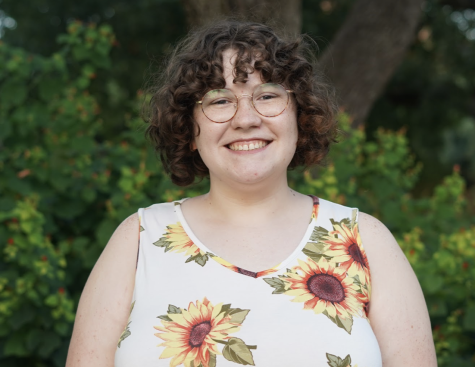
I'm a senior Computer Science major and a Classical Studies minor from Newton, North Carolina with a passion for art. I also work at the Center for Experiential...

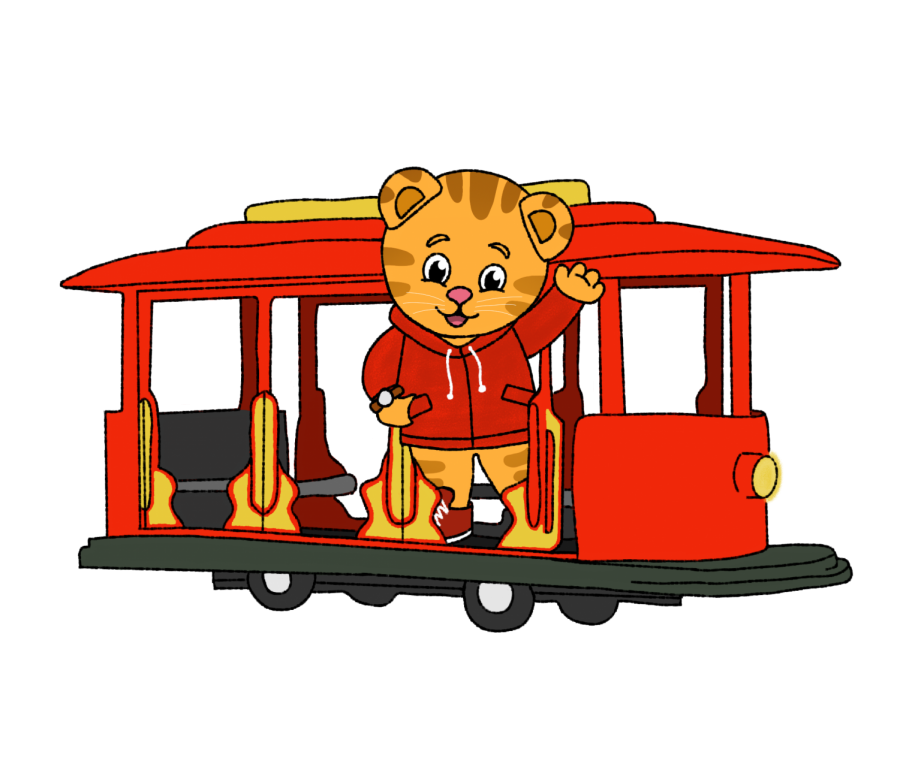





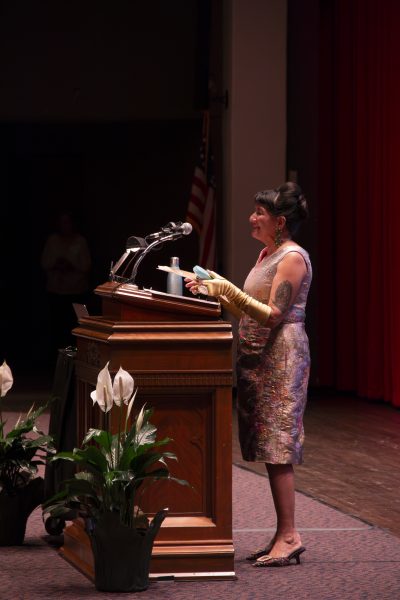

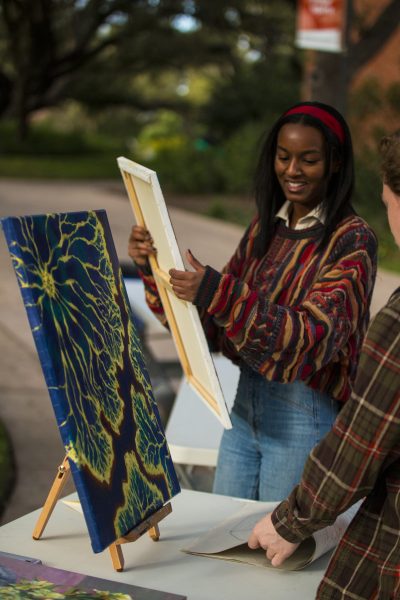
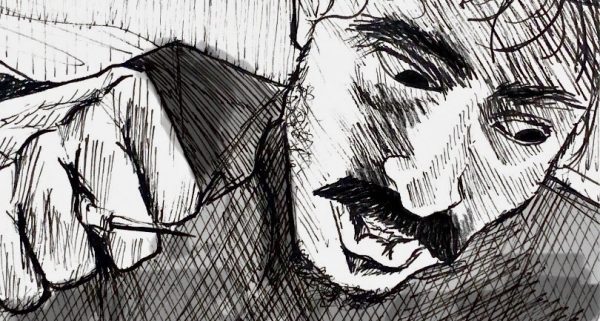

Erica • Jan 31, 2021 at 11:53 am
Thank you for this!! There aren’t any kids in my life right now so I’d never have come across this episode on my own, but the wisdom of Mr Rogers and Daniel Tiger is always something I love to hear 🙂